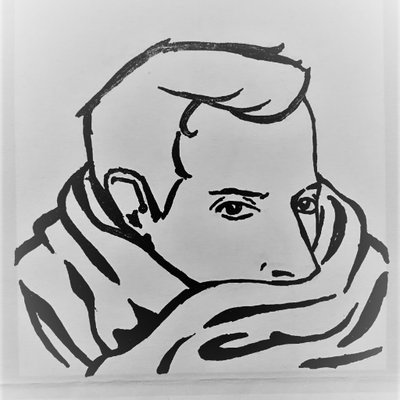Iain Stott
The Department Christmas Party

We all have some memory or other… good or bad. One memory of mine, from early during my PhD isn’t my memory at all, yet is especially memorable. Getting ready, I knew I needed to wear makeup that night. I call myself a “mood-dresser”: simply, I only feel comfortable in the “right” clothes. This varies from slouchy through smart to androgynous, sometimes including makeup. This Christmas party was unremarkable, until recently. A good friend of mine recently gifted me one of her memories: as I left the minibus at my stop, a Professor leaned to her to say how pleasing it was seeing me grow from an uneasy bachelor student, into the self-assured person I was that night. It’s heart-warming.
This memory probably sums up my academic experience. I’ve never (knowingly) been victim to hate or discrimination, and my peers have been accepting. Case in point: during the recent UK general election, I stayed up all night watching results roll in. To pass the time, I glittered myself: nail polish, eye shadow, glitter beard, sparkly clothes. Following a pleasing shattering of the Tory majority, I was (unrelatedly) invited to dinner with my group and a potential fellowship candidate. I pre-warned them of my appearance, but went out for dinner as I was, not a blink of an eye from anyone.
I’ve been lucky. Discrimination does happen. Then again, I’ve been affected in small ways, which non-LGBTQIA may not consider. I’ve often chosen not to apply for jobs based in places I know to be hostile to gay people. I plan during my current fellowship to attend the LGBTSTEMinar, but I questioned whether to include this in the application in case of a hostile reviewer. When presenting about my involvement with the women in STEM initatives, I’ve felt my heart beat faster and my face flush as I come out to a room full of people by telling them that like women, I as a gay man also lack senior role models. These are small issues hurdles, affecting some more than others. Some LGBTQIA people will have far more limited opportunities: think for example how hostile the majority of the world are to trans people.
Work isn’t the whole story: our work choices affect our life choices. On the one hand, my sexuality has benefited me as I’ve moved around Europe. Wherever I am, there’s a group of like-minded people who are easy to reach. At work, LGBT+ people often gravitate towards each other, and I’ve met some of my best gay friends at work. Outside of work, I have found friends through local LGBTQIA organisations, clubs, bars and apps.
On the other hand, as I’ve taken good jobs in small towns, dating has been hard. Dating in a small town is difficult at the best of times, but when your dating pool is limited to an estimated 1-2% of the population, I can tell you it’s far more difficult. At 30, I guess this means I’ve sacrificed an important part of life for work, which would be a smaller issue for a heterosexual person. I want my next position to be somewhere bigger, but in academia we usually don’t have the luxury of choice. I often contemplate moving out of academia for this among other reasons.
There are bigger issues for LGBTQIA people surrounding the impact of work on life. Would you settle somewhere your marriage isn’t legitimate? Would you live somewhere you can be legally refused goods and services based on your identity? Would you live somewhere that does not recognise your gender identity? Would you live somewhere that you cannot have children or adopt?
Being gay has overall been a gift for me in my career. I’m proud of my identity and I’ve built a professional and personal sphere of people who are totally accepting. It pays however to remember that although academia and the western world are increasingly accepting, this doesn’t preclude important issues faced by all your LGBTQIA colleagues and friends.
I hope I can one day be the Professor in the back of the minibus, proud of my students… and covered in glitter.
Chat with Iain on Twitter.
Like what we stand for?
Support our mission and help develop the next generation of ecologists by donating to the British Ecological Society.